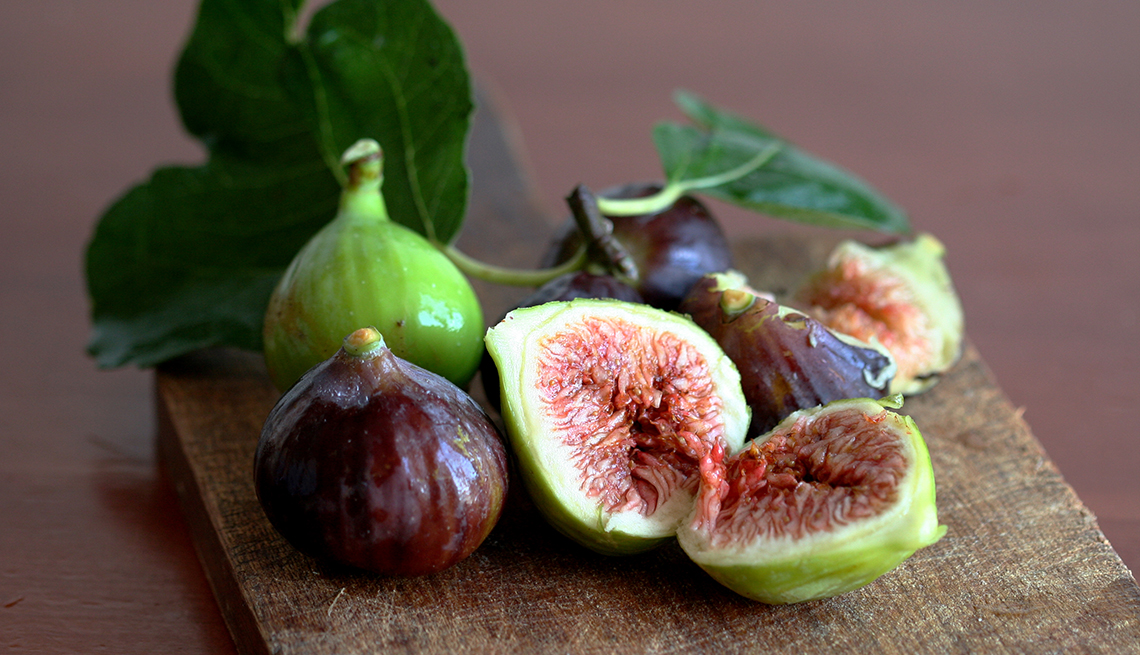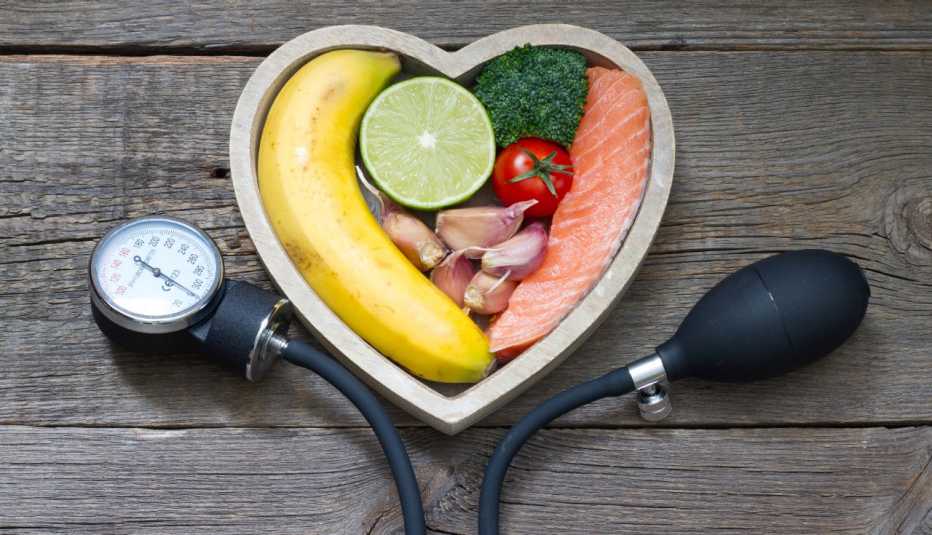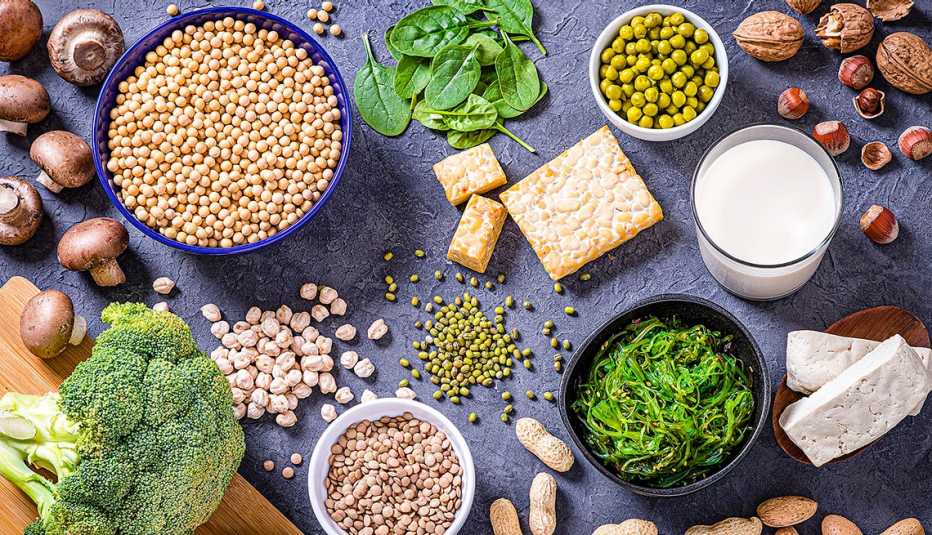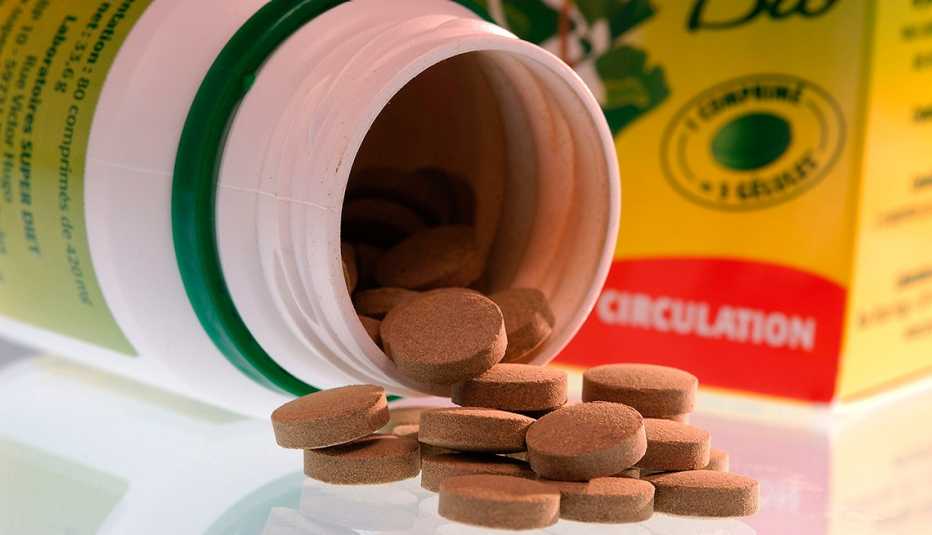Staying Fit
Surprising as it may seem, neglecting what’s good for your heart could spell trouble for your hearing. “The association of age-related hearing loss with heart disease has been well-documented,” says endocrinologist Robert H. Eckel, M.D., professor of medicine emeritus at the University of Colorado Anschutz Medical Campus. Normal hearing relies on good blood circulation.
There’s no evidence that what you eat can reverse hearing loss, but a healthy diet may help delay or slow further progression of hearing decline. The connection between your heart and your hearing turns out to be a steady flow of oxygen-rich blood, Eckel says.


AARP Membership— $12 for your first year when you sign up for Automatic Renewal
Get instant access to members-only products and hundreds of discounts, a free second membership, and a subscription to AARP the Magazine.
The sensitive hair cells in the inner ear convert sound waves into electrical impulses that the brain interprets as sound. Poor blood circulation or inadequate oxygen damages these sensitive cells, Eckel says, “so to reduce the risk of heart disease, it’s important to eat a diet rich in fruits, vegetables and whole grains, lean poultry and fish. In addition, for the sake of your heart, if you’re a smoker, quit; get some exercise, and stick to an optimal sleep routine.”
11 Foods That May Slow Hearing Decline
1. Bell peppers
Rich in folate (vitamin B9), these crunchy beauties help make red blood cells that carry oxygen throughout the body. Researchers link low levels to the risk of age-related hearing loss.
2. Bananas
Potassium-rich bananas help regulate levels of body fluids.
3. Cantaloupes
Melons contain the mineral potassium, which helps regulate fluid beneficial to the cochlea, the main organ of hearing.
4. Carrots
Beta-carotene, the plant pigment that gives carrots their color, may help reduce the risk of hearing loss.
5. Citrus fruits
Oranges, grapefruit, lemons and other citrus fruits contain folate (a.k.a. vitamin B9) that helps make red blood cells. Low folate levels have been linked to the risk of age-related hearing loss.
6. Dark green leafy vegetables
Broccoli, kale, Swiss chard and spinach (of course) contain folate (vitamin B9), which contributes to the health of the inner ear.
7. Eggs
Loaded with vitamin D, eggs are associated with lower odds of hearing problems.
8. Potatoes, sweet and white
Both are rich in zinc, which helps ward off infections that can affect the inner ear.
9. Pumpkin
Well-supplied with the plant pigment beta-carotene, this colorful fruit may help reduce the risk of hearing loss.
10. Tomatoes
Potassium-rich tomatoes — red, yellow and even green — help regulate fluid in the inner ear.
11. Fish
Two or more weekly servings of fish, such as tuna, salmon or herring, is related to a reduced risk of hearing loss. Fish contain omega-3 fatty acids, which are linked to a lower risk of heart disease. Bonus: Omega-3s from food may help reduce your dementia risk.
Further evidence that diet is a factor in preserving hearing: Researchers in Spain found that eating fruits and vegetables, omega-3 fatty acids and vitamins A, C and E was linked to a lower risk of developing hearing loss.
Hearing loss is often incorrectly considered to be an unavoidable companion to aging, says Sharon Curhan, director of CHEARS, the Conservation of Hearing Study at Brigham and Women’s Hospital in Boston. Her group’s research highlighted dietary and lifestyle factors that may reduce the risk of hearing loss. “We found that an overall healthier diet, including eating two or more servings of fish each week, was associated with a reduced risk of hearing loss,” Curhan says. Eating foods high in the carotenoids beta-carotene and beta-cryptoxanthin, found in richly colored fruits and vegetables such as cantaloupe, bell peppers, pumpkin and sweet potatoes, “may also help reduce the risk.” Curhan notes that more is not always better: “We were surprised to find that taking very high doses of vitamin C supplements was associated with an increased risk of hearing loss.”
Hearing loss may occur when blood flow to the cochlea — the main organ of hearing in the inner ear — is compromised, and what you eat can affect the health of your blood vessels, as well as blood pressure, so Curhan says a healthier diet can improve hearing and heart health.
Aim to eat nutrient-dense food rich in vitamins and minerals, as well as fiber and omega-3 fatty acids, which help the cells in your body function as they should. Try to get those vitamins from foods, rather than pills. “The nutritional supplement market is inadequately regulated,” says Elliott Kozin, M.D., an otologist (ear, nose and throat physician) at Mass Eye and Ear, and taking supplements without checking with your doctor “may cause unwanted side effects.”







































































